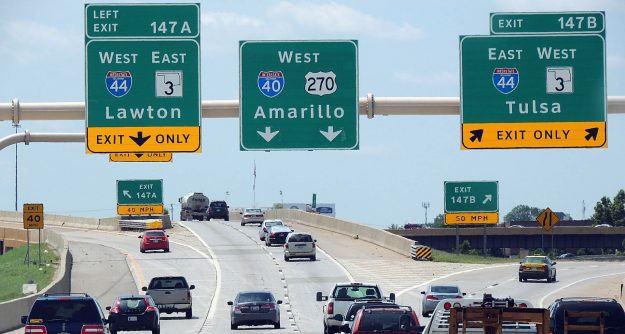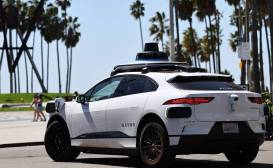Oklahoma convenes autonomous vehicle task force to inform future legislation

Oklahoma is a bit behind in setting policies for autonomous vehicles, according to the state’s top transportation official, but he says a new task force will help it catch up.
Mike Patterson, the state Department of Transportation director since 2013, told StateScoop that the task force’s primary objective is to coordinate connected-vehicle transportation through the I-40 corridor — leveling with neighbors like Texas, Arkansas and Tennessee, who have all enacted legislation relating to autonomous vehicles.
Oklahoma partnered with those states on trying to develop a regional corridor for connected trucks, “and we found that Oklahoma is the only state that doesn’t allow it, at least on I-40,” Patterson said. “We have a similar situation in Texas — there are trucks traveling out of the Dallas/Fort-Worth area that are connected, but you get to the border … We think we’re a little bit behind in that nature.”
The task force — which includes Oklahoma officials from all levels of government, as well as representatives of trucking and shipping industries — has convened once already and will continue to meet once a month. Patterson said the goal is to have a body of work presentable to the Oklahoma legislature by mid-December — two months before the 2019 session begins.
“What we want to accomplish is that Oklahoma needs to be prepared for whatever the industry decides transportation is going to look like,” he said. “We need to be prepared for whatever the public demands of the transportation system as this evolution continues.”
The idea was almost put into place year ago, but Patterson cited natural “evolution” of the industry as a key factor in waiting to get stakeholders together. The state has virtually no regulation whatsoever over autonomous vehicles or trucks, and the primary federal action on the matter — the AV START Act moving through Congress — is a contentious piece of legislation at best. Therefore, Oklahoma is looking local for its policy direction.
State, city, county and municipal officials, including transportation, urban planning and infrastructure leaders, fill out the public-sector seats on the task force. Associations and shipping companies such as the Oklahoma Trucking Association, AAA and UPS have been invited to present or sit on the force as well. Their education on the burgeoning field of self-driving vehicles is coming from auto manufacturers like Tesla, Uber and more as the year goes on.
“The notion of the task force is that we know that people are at different educated levels,” Patterson said, “so my first goal is to get everybody about to the same level of education of what’s going on outside of Oklahoma so that we can all start at the same point as we begin to develop policies, statutes and regulations.”
The state isn’t the first to try to use a task force to focus policy efforts in the field. Indiana would have had a statewide task group to grant permits to companies that applied for AV testing in the state, but the bill failed to pass after a nasty dispute between lawmakers and auto lobbyists, who wanted to wait for the federal government to create a regulatory environment before states offered their own solutions. Oklahoma hasn’t introduced policy yet, but Patterson is preparing the task force to inform potential legislation.
“I don’t think that [a federal regulatory landscape created before state-level regulations] is going to work,” Patterson said. “I think the demands on the system at the local level are such that we’re going to have to react. Hopefully Congress can find time to work on this, but we may need to work a little ahead of schedule.”






